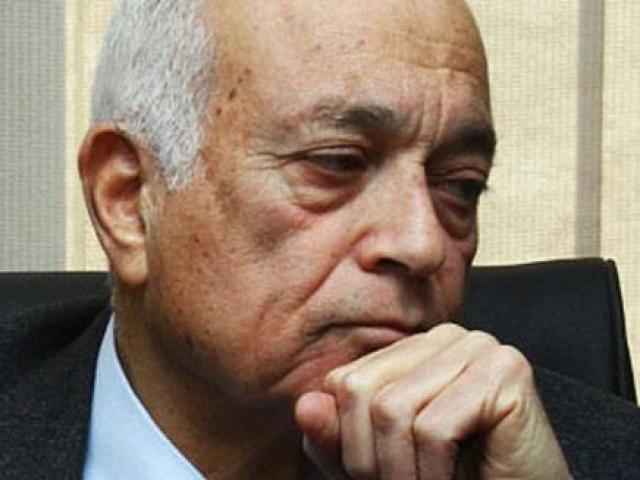
It’s Time to Review Our Foreign Policy
Press Release
Two weeks before he accepted the post of Minister of Foreign Affairs in the transitional government, Minister Nabil el-Araby wrote an article in the Al Shourouk daily newspaper outlining necessary changes that are needed for the foreign policy of a post-revolutionary Egypt. Below is an unofficial English translation of the article prepared by the Egyptian Initiative for Personal Rights. The original article (in Arabic) could be found here.
It’s time to review our foreign policy
Nabil el- Araby
Al Shorouk, 19 February 2011
The white revolution led by the January 25 youth and supported by all segments of the Egyptian people was a defining historical moment and will always remain a beacon lighting the path for all peoples of the world.
The revolution holds many important lessons that will no doubt occupy political analysts in the halls of government and academia for years to come.
Now we are at the beginning of a new phase in which everyone hopes that Egypt will be blessed with good governance that achieves a sound democracy, respect for human rights and equality for all without discrimination. The mission now is to establish a modern, secular state in which the rule of law holds sway and is applied equally to all. This requires abolishing a massive number of laws drafted by special government tailors in years past. The constitutional and legal framework that has governed Egypt for the last fifty years must be subjected to a profound, serious and transparent reassessment.
We must also review our foreign policy. This matter presents itself with great urgency after the January 25 revolution has highlighted the need to reassess internal conditions and revise the constitution, laws and regulations that obstructed the proper application of justice and respect for human rights and basic liberties enshrined in international conventions.
In recent years, Egypt’s foreign policy has not been the object of a rigorous, modern approach in which decisions are made only after careful study of all possible dimensions by experts and specialists. Foreign policy was largely forged in reaction to events, and decisions made on an individual level, and sometimes arbitrarily without the requisite consideration.
Egypt has substantial weight and an important historical role, having contributed to all spheres, and not just in the Arab world or Africa, but globally. It is thus inappropriate for its foreign policy to be improvised or stand in grave violation of the basic precepts of international law. An example is Egypt’s stance toward the siege imposed on the Gaza Strip, which is in breach of international humanitarian law prohibiting blockades of civilians even in wartime. When it comes to matters of national security, this method of decision-making is incompatible with Egypt’s status and its history.
I hope that the state decides to establish a permanent National Security Council to oversee foreign policy decision-making. This is not an encroachment on the Foreign Ministry’s jurisdiction; rather, many issues are by nature complex and tangled, touching on matters that go beyond the purview of the Foreign Ministry and requiring the input of more than one state body. All developed nations in the modern world established national security councils long ago, and it is time that Egypt took this important strategic step.
In particular, I would like to address some legal aspects that determine the general foreign policy framework.
Firstly, under what is known as the clean slate doctrine in international law, newly established states—those that win independence from a colonial power or emerge out of a secession—have the right to declare their non-compliance with certain international agreements. This doctrine does not apply to agreements on borders, for the stability of international borders is held sacred by international law and cannot be undermined.
Secondly, nations that only experience a change of regime —and this applies to Egypt today—must respect their treaty obligations. This was in fact asserted in the constitutional declaration issued by the Supreme Council of the Armed Forces. Nevertheless, Egypt has the right to investigate whether other parties to these agreements are respecting or violating their obligations.
International law permits a reconsideration of international obligations in two cases:
1. In the case of a fundamental change of circumstances. Egypt has experienced just such a change twice in its modern history, the first time when the government of Nahas Pasha terminated the 1936 treaty in October 1951, and the second time in March 1976, when President Sadat abrogated the Treaty of Friendship concluded with the Soviet Union in 1971.
2. If there is a material breach of some provision of the treaty, the other party has the right to suspend or terminate the treaty, depending on the gravity of the breach. This would apply to all of Egypt’s international obligations, including the obligations incurred under the peace treaty with Israel if it emerged that there is some breach of the treaty provisions by the latter.
Thirdly, in terms of international relations, for Egypt to enter the twenty-first century it must take several steps to become a state that respects and complies with international humanitarian law. The most important of these steps are:
• Recognize the jurisdiction of the International Court of Justice as compulsory. Since 1957 Egypt has accepted the compulsory jurisdiction of the court in matters related to the operation of the Suez Canal, under the 1888 Convention of Constantinople.
• Ratify the Rome Statute and become a state party to the International Criminal Court.
• Ratify the optional protocols of all human rights conventions, including the Geneva Protocols.
These are in brief some of my proposals for elevating Egypt’s international standing. We must embark on a thorough review of Egypt’s foreign policy with the goal of ensuring that our treaties with other nations are respected equally by both parties, that they are applied properly and that Egypt’s sovereign rights are not prejudiced.



